At the end of the playback of the take of “Like A Rolling Stone”, or actually during the thing.
AL KOOPERThe “Highway 61” album [of Bob Dylan] was produced by Bob Johnston if I’m not incorrect. And Bob Johnston was an entirely different producer than Tom Wilson.
More Al Kooper Quotes
-





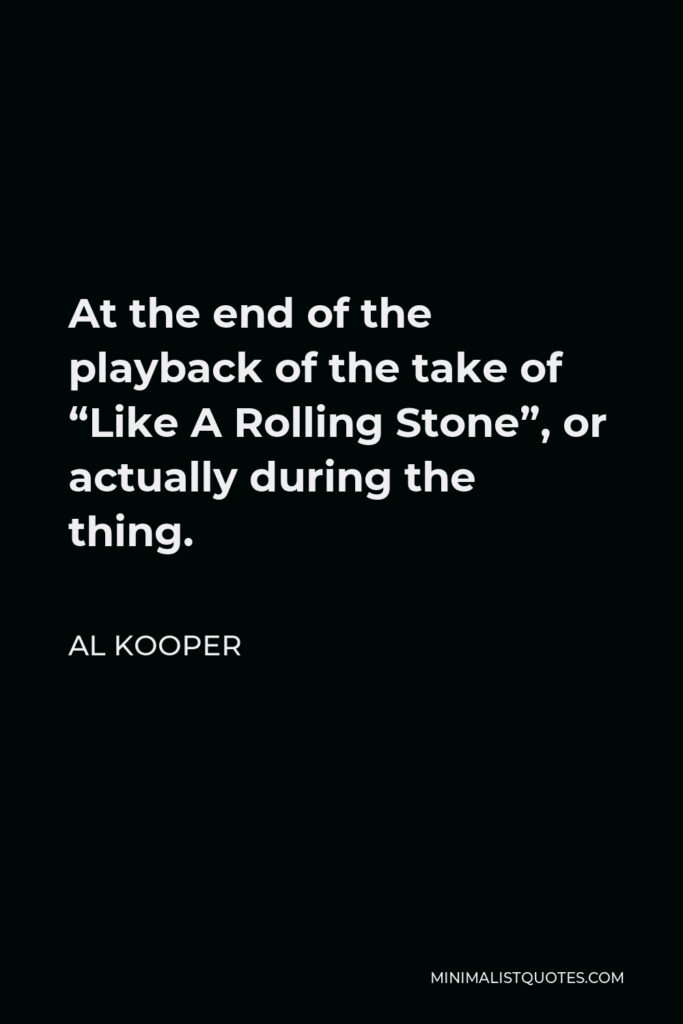

-





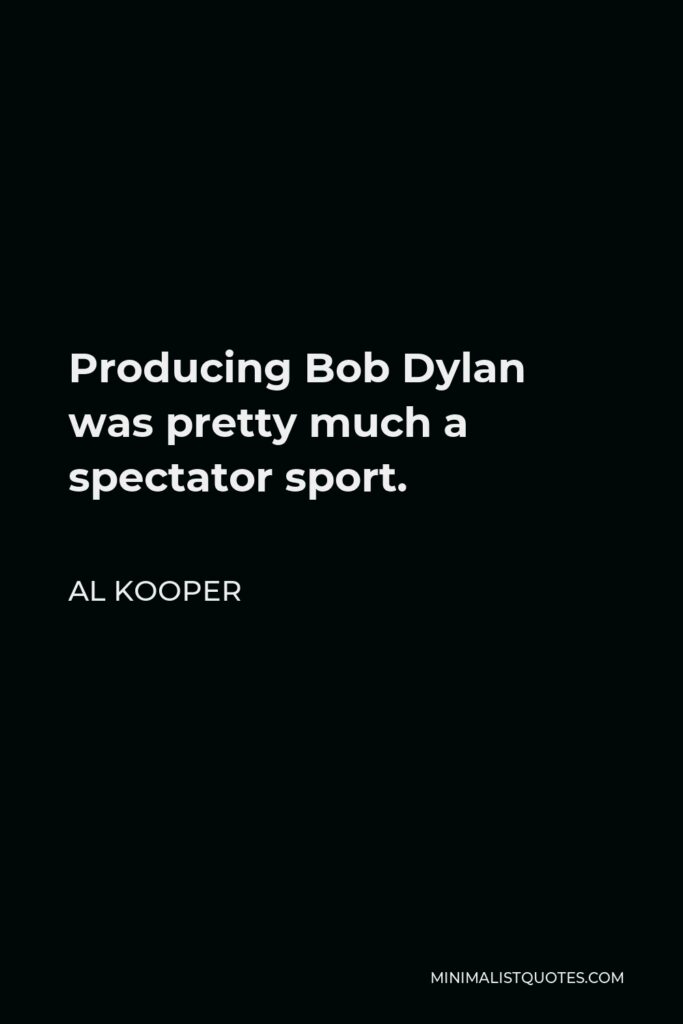

Producing Bob Dylan was pretty much a spectator sport.
AL KOOPER -





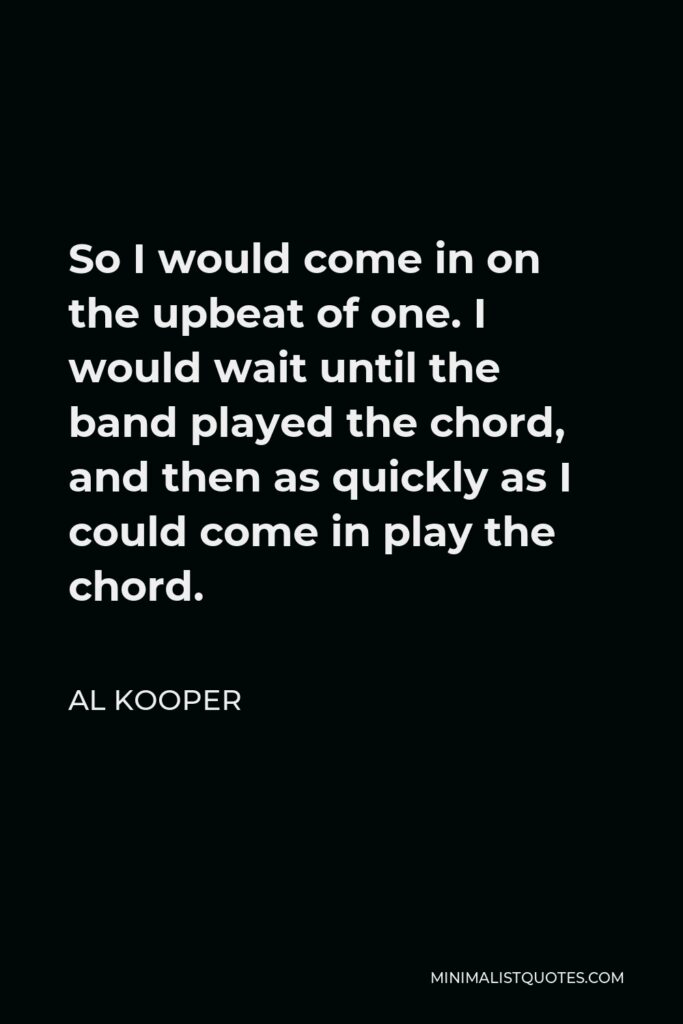

So I would come in on the upbeat of one. I would wait until the band played the chord, and then as quickly as I could come in play the chord.
AL KOOPER -





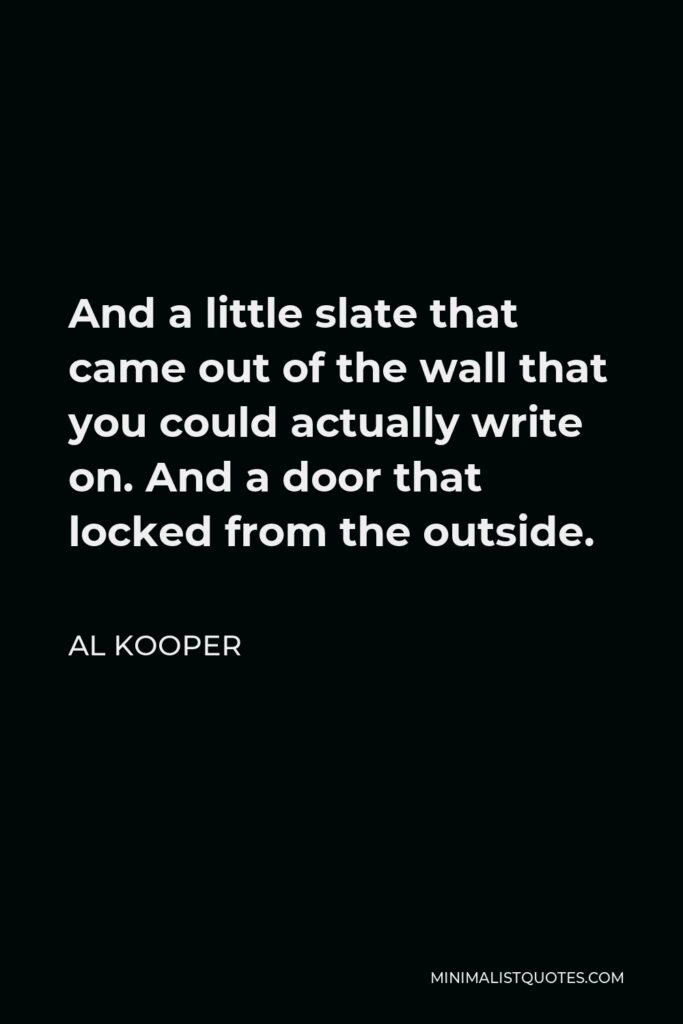

And a little slate that came out of the wall that you could actually write on. And a door that locked from the outside.
AL KOOPER -





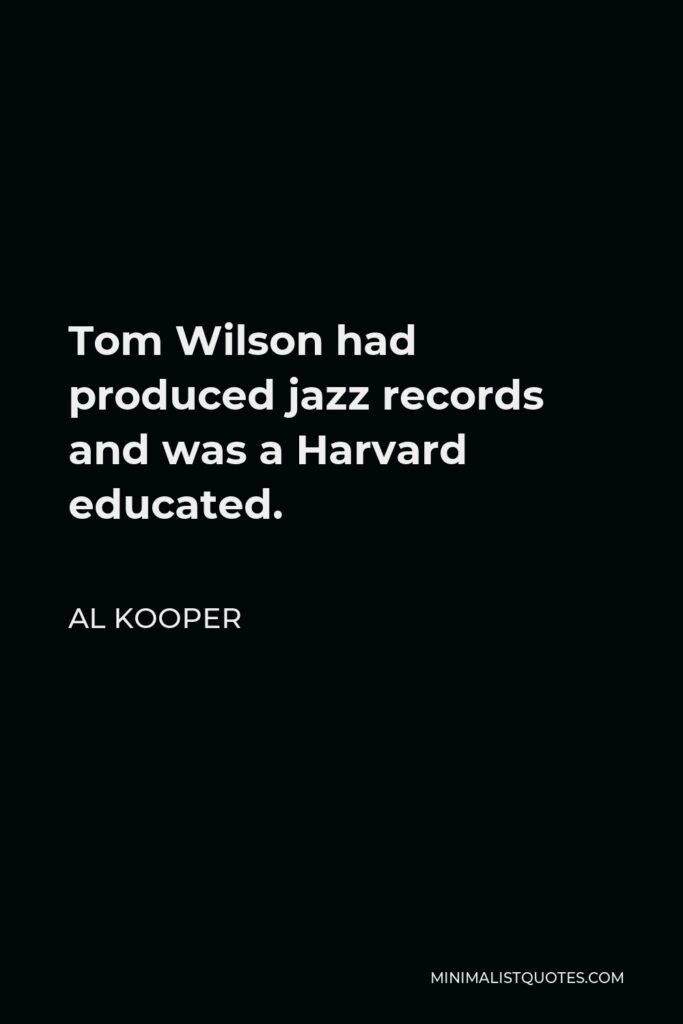

Tom Wilson had produced jazz records and was a Harvard educated.
AL KOOPER -





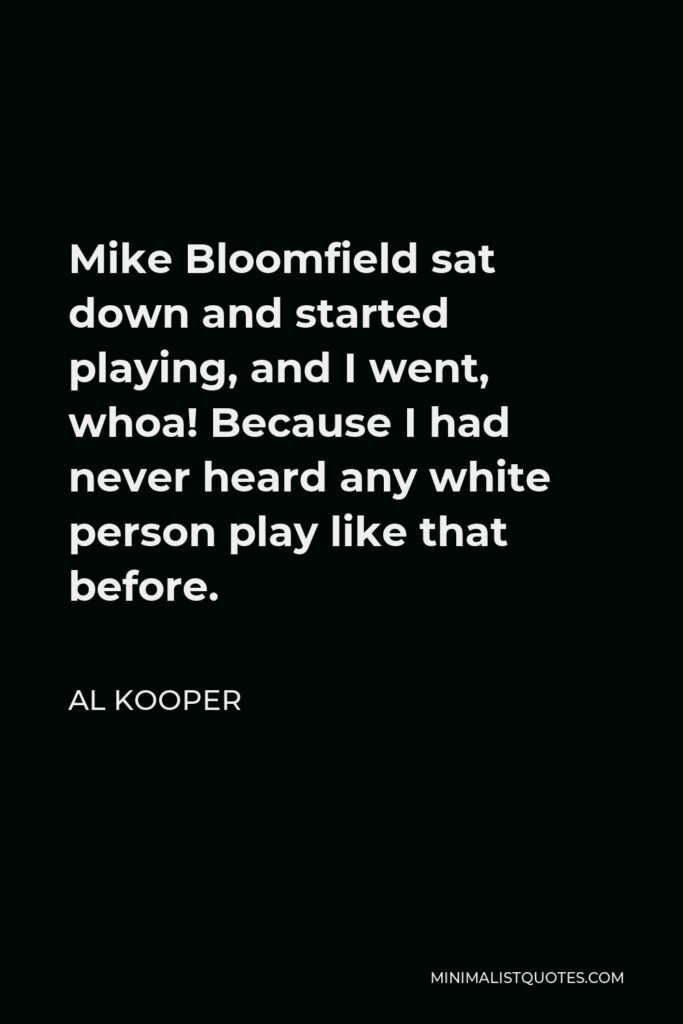

Mike Bloomfield sat down and started playing, and I went, whoa! Because I had never heard any white person play like that before.
AL KOOPER -





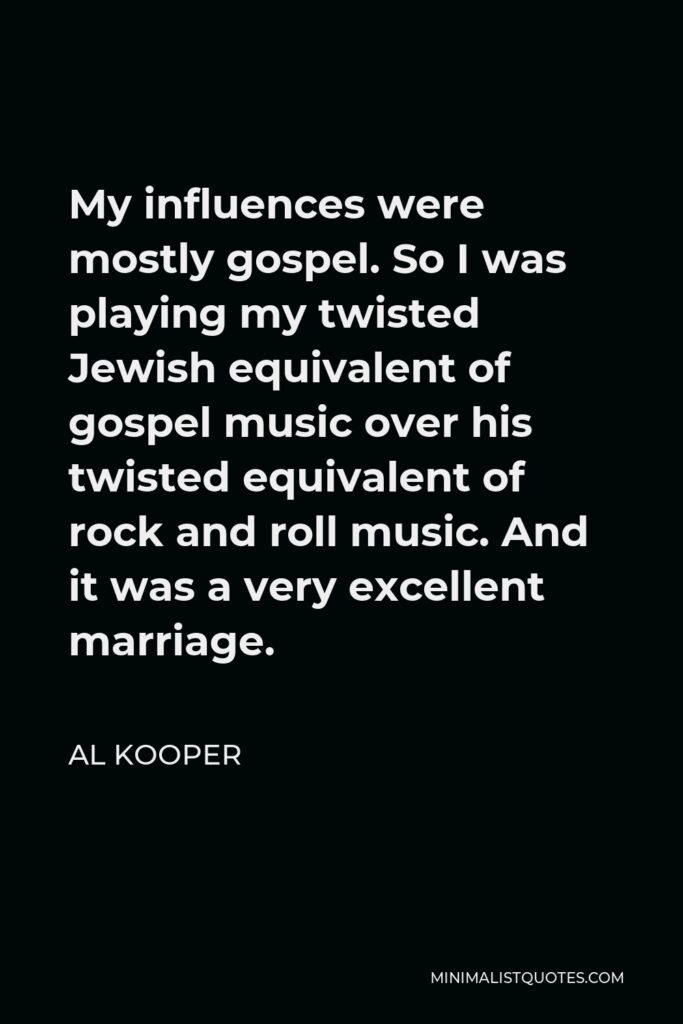

My influences were mostly gospel. So I was playing my twisted Jewish equivalent of gospel music over his twisted equivalent of rock and roll music. And it was a very excellent marriage.
AL KOOPER -





![Al Kooper Quote - Only through sheer ambition did I end up playing on [Bob Dylan sessions] and the fact that I could do that is a testament to how disorganized it really was.](https://minimalistquotes.com/wp-content/uploads/2022/07/only-through-sheer-ambition-did-i-end-up-playing-o-683x1024.jpg)

Only through sheer ambition did I end up playing on [Bob Dylan sessions] and the fact that I could do that is a testament to how disorganized it really was.
AL KOOPER -





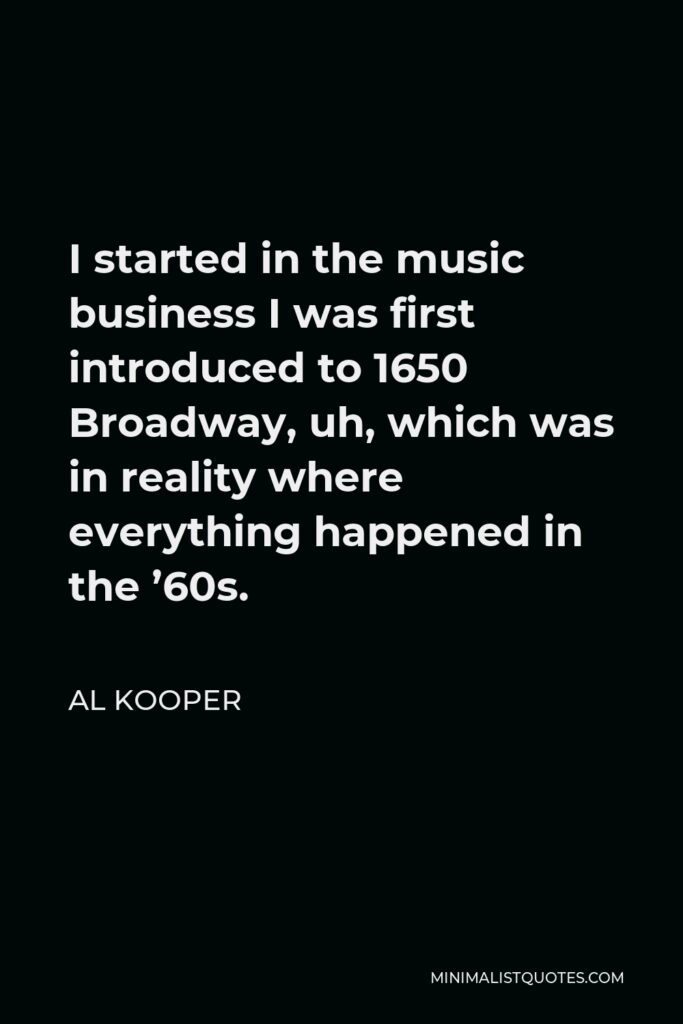

I started in the music business I was first introduced to 1650 Broadway, uh, which was in reality where everything happened in the ’60s.
AL KOOPER -





![Al Kooper Quote - I think it was Columbia politics, Columbia Records politics that, that, Tom Wilson left [Bob Dylan] after “Like A Rolling Stone”.](https://minimalistquotes.com/wp-content/uploads/2022/07/i-think-it-was-columbia-politics-columbia-records--683x1024.jpg)

I think it was Columbia politics, Columbia Records politics that, that, Tom Wilson left [Bob Dylan] after “Like A Rolling Stone”.
AL KOOPER -





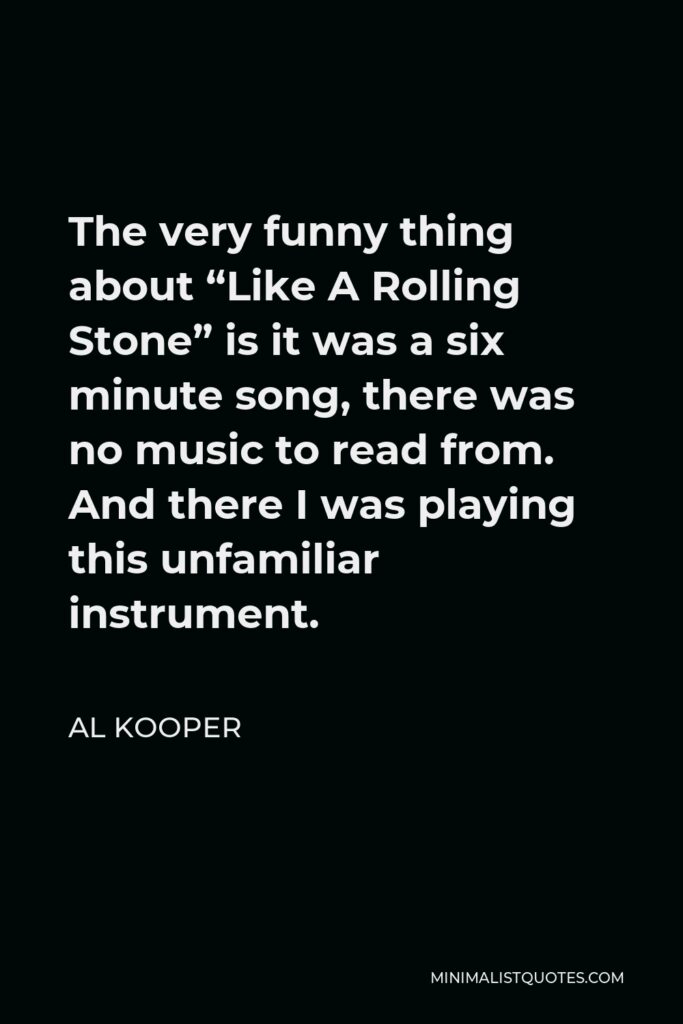

The very funny thing about “Like A Rolling Stone” is it was a six minute song, there was no music to read from. And there I was playing this unfamiliar instrument.
AL KOOPER -





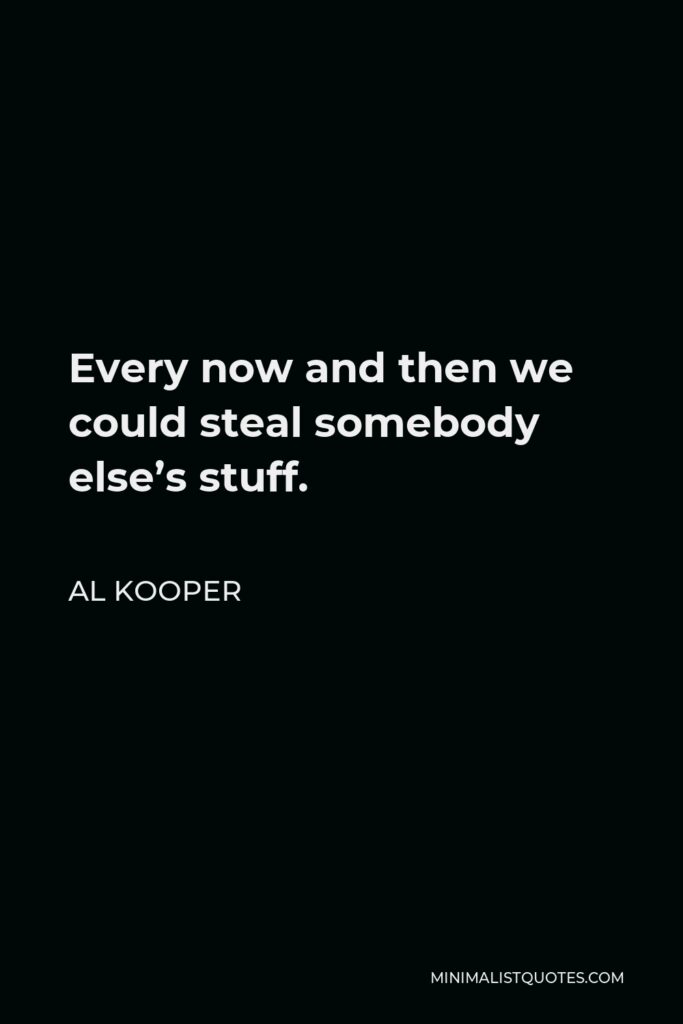

Every now and then we could steal somebody else’s stuff.
AL KOOPER -





![Al Kooper Quote - The first generation from the ’50s that were in 1650 [Broadway] were pretty much all crooks,](https://minimalistquotes.com/wp-content/uploads/2022/07/the-first-generation-from-the-50s-that-were-in-165-683x1024.jpg)

The first generation from the ’50s that were in 1650 [Broadway] were pretty much all crooks,
AL KOOPER -





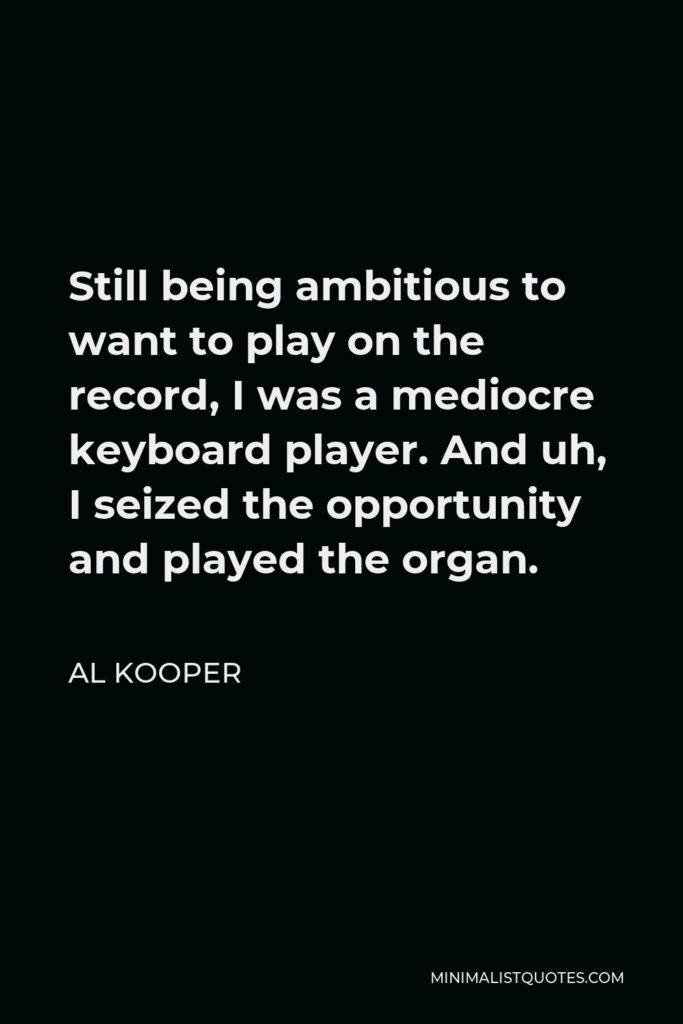

Still being ambitious to want to play on the record, I was a mediocre keyboard player. And uh, I seized the opportunity and played the organ.
AL KOOPER -





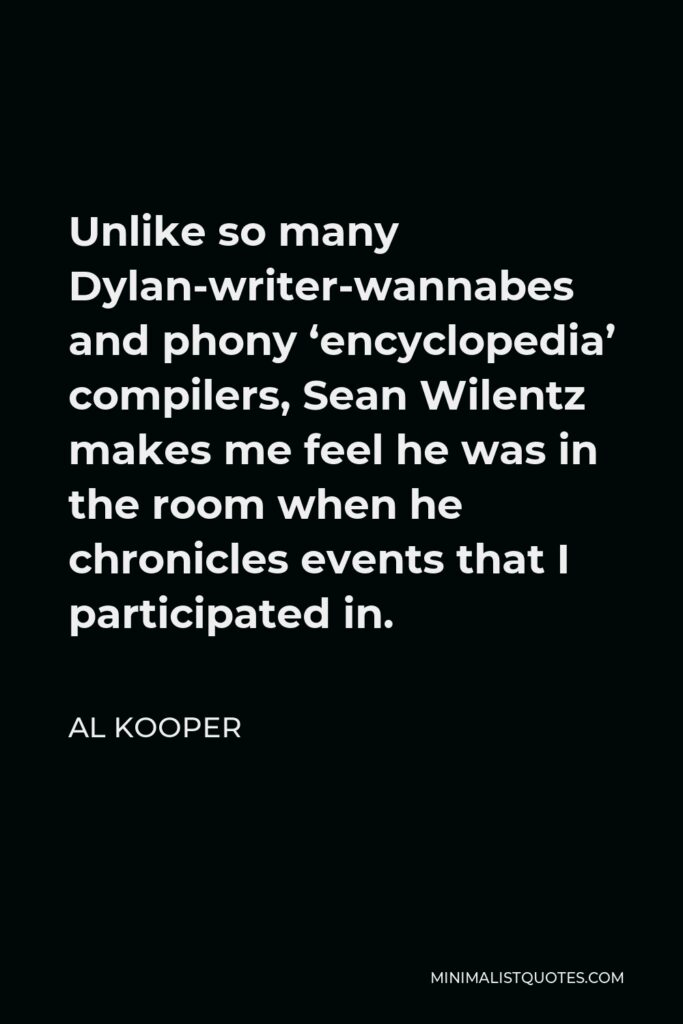

Unlike so many Dylan-writer-wannabes and phony ‘encyclopedia’ compilers, Sean Wilentz makes me feel he was in the room when he chronicles events that I participated in.
AL KOOPER -







Finally a breath of fresh words founded in hardcore, intelligent research.
AL KOOPER
![Al Kooper Quote - The “Highway 61” album [of Bob Dylan] was produced by Bob Johnston if I’m not incorrect. And Bob Johnston was an entirely different producer than Tom Wilson.](https://minimalistquotes.com/wp-content/uploads/2022/07/the-highway-61-album-of-bob-dylan-was-produced-by-.jpg)
![Al Kooper Quote - The “Highway 61” album [of Bob Dylan] was produced by Bob Johnston if I’m not incorrect. And Bob Johnston was an entirely different producer than Tom Wilson.](https://minimalistquotes.com/images/grey-the-highway-61-album-of-bob-dylan-was-pr.jpg)
![Al Kooper Quote - The “Highway 61” album [of Bob Dylan] was produced by Bob Johnston if I’m not incorrect. And Bob Johnston was an entirely different producer than Tom Wilson.](https://minimalistquotes.com/images/blue-the-highway-61-album-of-bob-dylan-was-pr.jpg)
![Al Kooper Quote - The “Highway 61” album [of Bob Dylan] was produced by Bob Johnston if I’m not incorrect. And Bob Johnston was an entirely different producer than Tom Wilson.](https://minimalistquotes.com/images/red-the-highway-61-album-of-bob-dylan-was-pr.jpg)
![Al Kooper Quote - The “Highway 61” album [of Bob Dylan] was produced by Bob Johnston if I’m not incorrect. And Bob Johnston was an entirely different producer than Tom Wilson.](https://minimalistquotes.com/images/brown-the-highway-61-album-of-bob-dylan-was-pr.jpg)
![Al Kooper Quote - The “Highway 61” album [of Bob Dylan] was produced by Bob Johnston if I’m not incorrect. And Bob Johnston was an entirely different producer than Tom Wilson.](https://minimalistquotes.com/images/white-the-highway-61-album-of-bob-dylan-was-pr.jpg)

